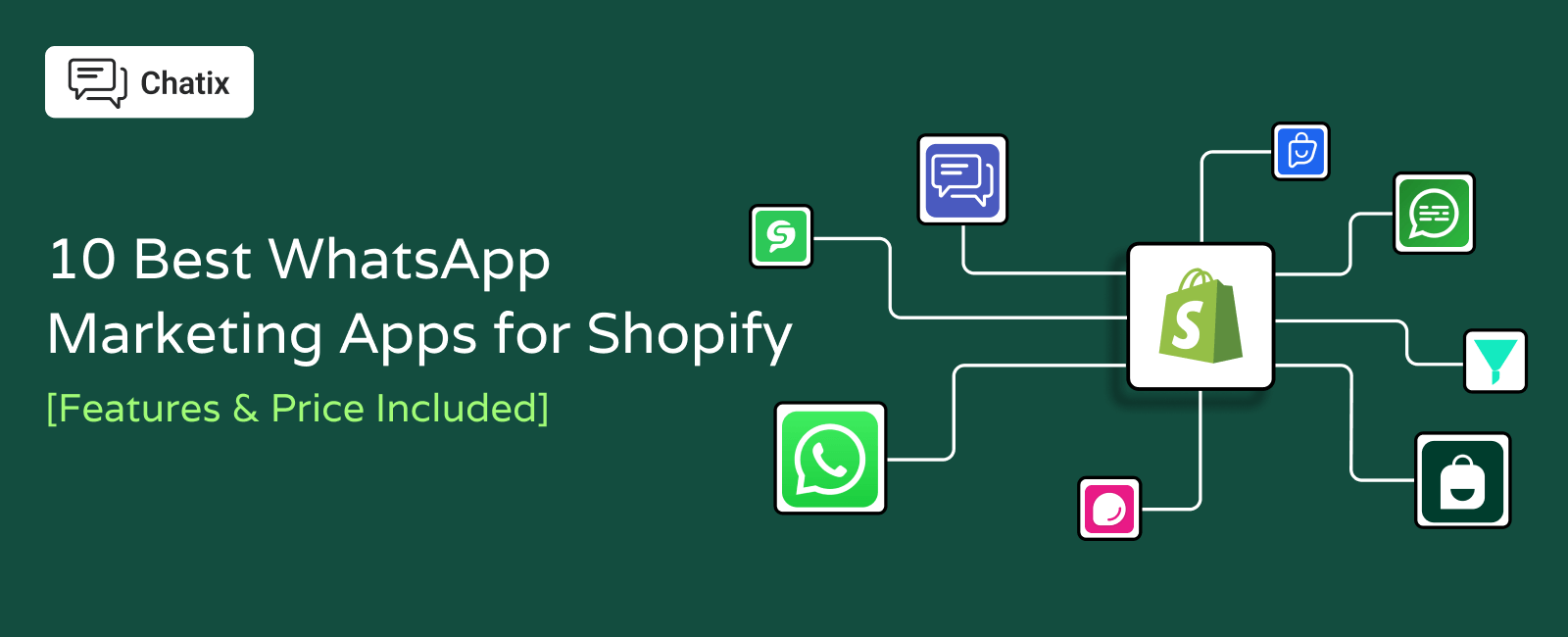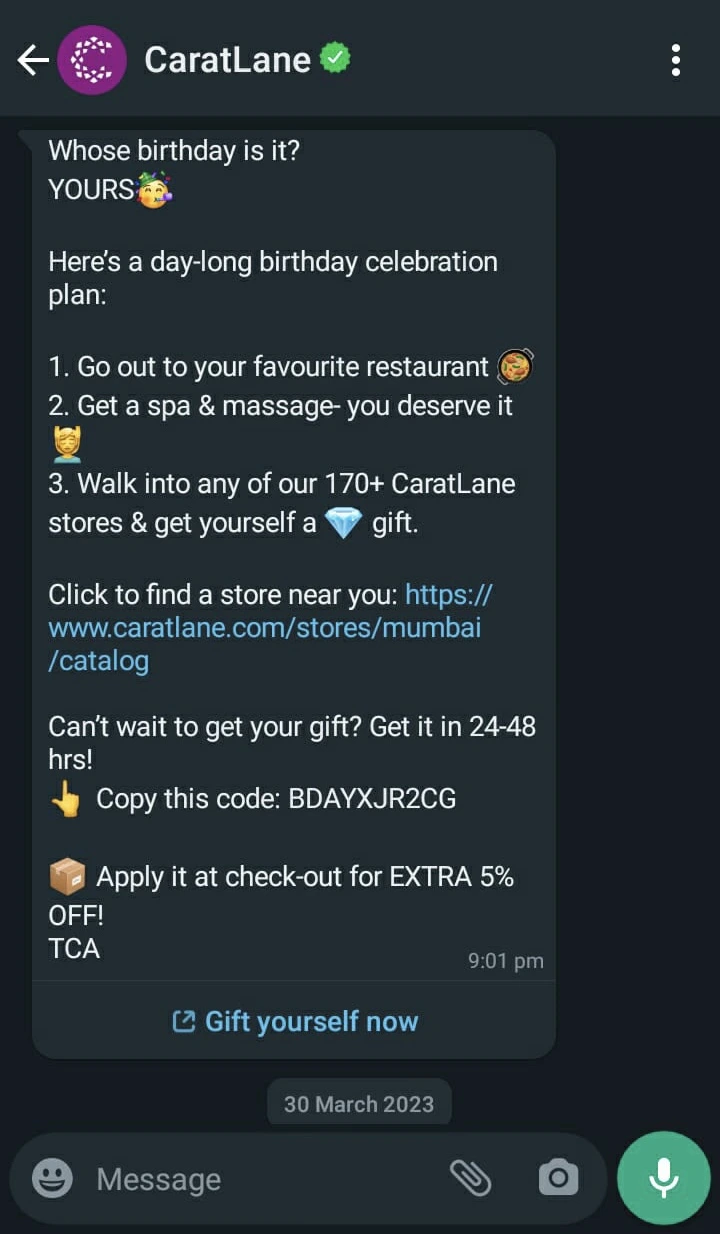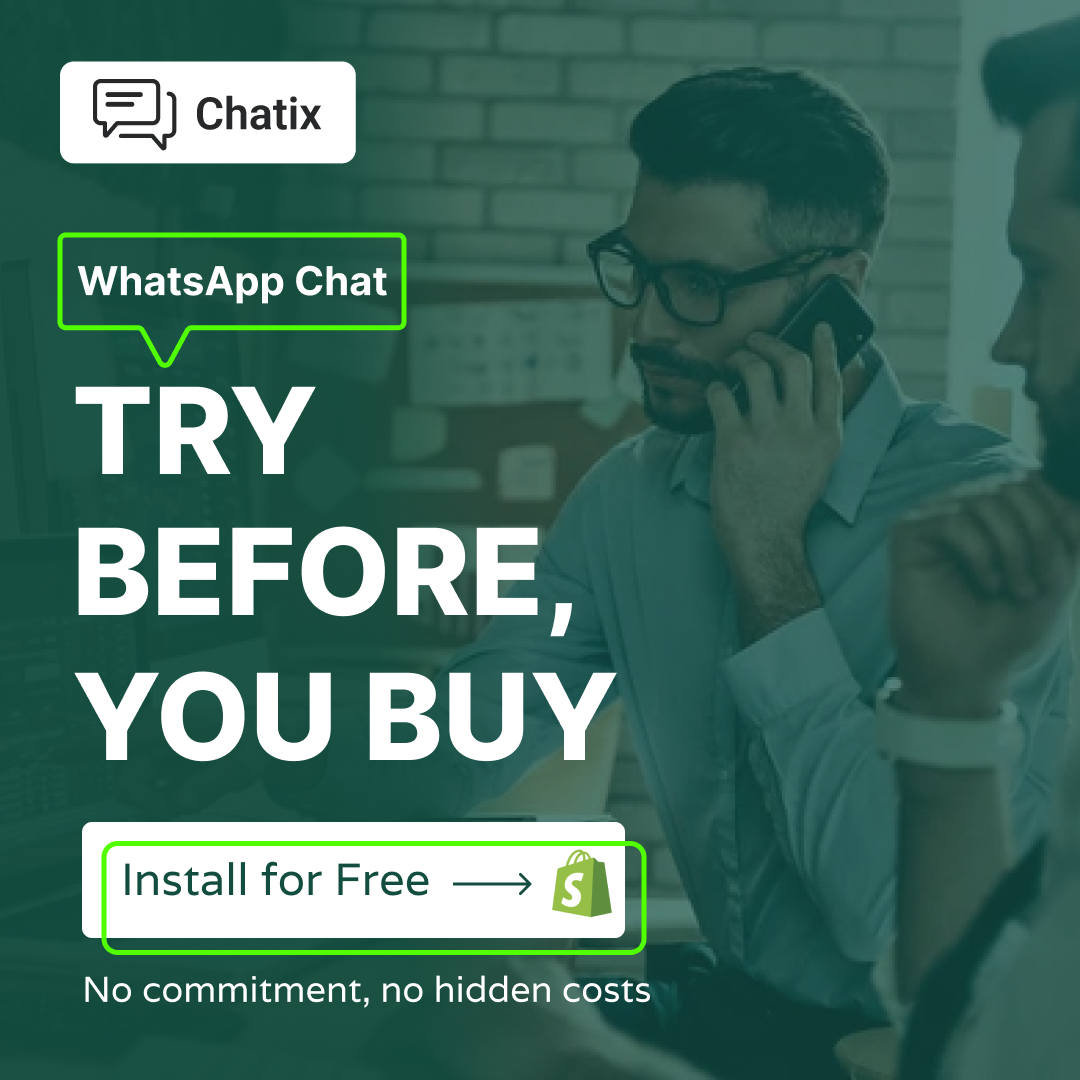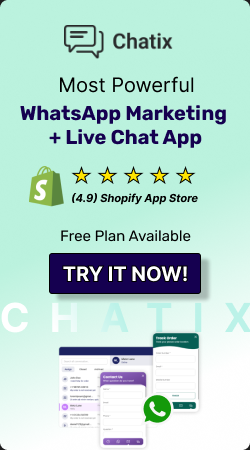
WhatsApp Marketing: A Simple Guide
WhatsApp Marketing Published: February 21, 2024
Back in the day, when WhatsApp first popped onto the scene, it was just like any other social platform where users could connect, communicate, and chat with friends and family.
WhatsApp is the first on the list when we talk about the world’s most engaging social networking platform.
Fast forward to 2023, and WhatsApp has shaped social commerce, the creator economy, and how brands use social media for over a decade.
With over 2 billion monthly active users and a 98% open rate of messages, no business can forget this platform to reach potential customers, drive more engagement, and build strong relationships with them.
Most brands are already shifting their marketing focus to this instant messaging app, and your brand should too.
This complete guide will walk you through the complete details about WhatsApp marketing, steps to creating a winning WhatsApp marketing strategy, setting goals, and more.
But first, let's take a look at some basic information that will help you a lot.
What is WhatsApp marketing?
WhatsApp marketing refers to the use of messages or chats for business promotion purposes. In short, any promotional activities such as customer support, announcements about updates or events, cart recovery prompts, and new product launches are part of effective WhatsApp marketing.
People of all ages, including males, females, and teenagers, spend an average of 30 minutes on this platform, making it a highly effective marketing platform for brands, entrepreneurs, and creators.
Like other channels, WhatsApp also offers various features and tools that companies can use to grow organically.
Why WhatsApp marketing is essential for E-commerce stores
We all know how great WhatsApp is for sending text messages and sharing photos, videos, and documents with our loved ones, but it's also an incredible channel for e-commerce marketing, especially since WhatsApp officially launched its Business API.
Here are some benefits of WhatsApp marketing:
1. More reach, more awareness
As we mentioned before, WhatsApp has the largest audience base across the world, which means you can reach people from all corners of the earth. WhatsApp allows you to send one message to multiple users at the same time.
It means a higher chance of getting more eyeballs on your message and sales growth. That’s all that happens instantly and for free.
2. Higher open rate
One of the top-notch reasons for choosing WhatsApp over other communication channels is that people are more likely to read messages as soon as they see them in their chat box.
When someone sends an email to us, it is categorized as social, primary, and spam and blocks genuine messages from reaching your audience.
But the good news is WhatsApp doesn’t categorize the messages or send them to spam folders, which means users are more likely to receive the messages and open them.
3. Higher click-through rate
WhatsApp Messenger has become everyone’s daily checking app. The fact that people are used to checking their WhatsApp first after waking up in the morning. The study suggests that each user opens WhatsApp at least 2 to 3 times a day.
For those who don’t know, WhatsApp Business provides the feature of an interactive message that contains buttons that users can click and get an auto-response or redirect to the website. If we look at the data, the average click-through rate (CTR) for social media campaigns is 5%; on e-mail, it's 3%; and on WhatsApp, it's 35%. It’s like a rocket 🚀!
4. Automated response
The WhatsApp Business app offers an automated response function to streamline customer service and improve communication. There are two types of automated responses: quick replies and Best Invitation Message for Event
Automated replies are predefined messages that can be set up to respond to commonly asked questions or to acknowledge incoming messages.
Quick replies, on the other hand, are customizable templates that allow you to save and reuse frequently used responses, enabling you to respond swiftly to customer inquiries.
Through this functionality, businesses can enhance the customer shopping experience and improve response rates.
5. Higher conversion rate
People prefer to read shorter sentences over longer paragraphs, and that is the reason why 75% of emails never get opened.
In this digital era, where technology is revolutionizing, businesses understand the value of digital communication; by contrast, 80% of messages sent via WhatsApp are seen within five minutes.
Sending interactive messages and solving customers’ queries instantly can inspire them to take action and make a purchase, resulting in higher sales and revenue growth.
For instance, you are a small business owner selling footwear online. You are using WhatsApp marketing to increase sales because you have a large amount of personal details about your customers and you want them to buy more from your store.
Throughout the broadcast feature, you are sending personalized messages with special offers at one time. Your customers will engage with and interact with your message, which improves the buyer’s journey and conversion rate.
✨Learn how to sell products on Whatsapp, in simple terms.
6. Cost-effective
In this competitive landscape, most software charges higher costs for subscriptions. WhatsApp marketing is a relatively low-cost marketing strategy because WhatsApp Business is free to use for everyone.
Just send a broadcast message promoting your product or services to the contacts, get the response, and track the result—as simple as that! There is no need to pay an extra dime.
Large-size or enterprise businesses would need the WhatsApp Business API. It can be a little bit costly.
15 Best WhatsApp marketing strategies and practices
WhatsApp marketing strategy should be helpful, engaging, and relatable to your audience. And best practices have the potential to reach customers of all ages, regions, and geographies. Follow them and apply them to your work.
1. Build a strong brand persona.
Building a strong brand persona is essential for any business that aims to stand out in a competitive market and make a bond with customers. Impressive branding plays a vital role in making sure that customers can spot your company quickly and trust it more than others.
Brand persona also makes it relatable and easy for your audience to connect with.
If you’re building a conversational WhatsApp marketing strategy, make sure you’re following these tips:
-
Verify your WhatsApp business profile and get a green tick.
-
Carefully present your business as a brand.
-
Send a media-rich message.
-
Never wait for your customers for longer.
-
Speak with your customers as you speak with your friends.
Remember, branding is everything, so never compromise on quality.
2. Send promotional broadcast message
When it comes to effective WhatsApp marketing, Sending broadcast messages is the first practice that comes to the top of the list.
The best thing is that you can send the same message to up to 256 contacts at the same time and recipients will have no idea that they are a part of the mass messaging campaign.
This makes communication more personalized and trusted.
3. Send a promotional broadcast message.
When it comes to effective WhatsApp marketing, sending broadcast messages is the first practice that comes to the top of the list.
The best thing is that you can send the same message to up to 256 contacts at the same time, and recipients will have no idea that they are a part of the mass messaging campaign.
This makes communication more personalized and trusted.
4. Add personalization to the message
If you want your customers to recognize your brand from the crowd, never look like a robot. Make your customer feel more special and valued by adding personalization to the message. Customizing your messages, like including their name, interest, or behavior, can make it feel more like a one-on-one conversation.
Personalization is the key to demonstrating that you understand and care about your audience as friends, not just as customers. This approach can lead to deeper connections, increased brand loyalty, a higher conversion rate, and more successful marketing outcomes.
5. Leverage automation
The more interesting thing about WhatsApp is that it also works on automation, which means when someone adds a product to their cart, proceeds to checkout, but leaves without purchasing, WhatsApp can send them a message straight away as a reminder message.
Not just that, whether you want to send a message for order confirmation, address verification, helpful alerts, reminders, or nudging them about an unfinished purchase, you can let WhatsApp do it for you automatically via setting up a messaging workflow.
Read the completed list of best WhatsApp automation tools including free and paid.
6. Launch ‘Click-to-WhatsApp’ Ads
Click-to-WhatsApp ads, or direct-to-WhatsApp ads, are the most important strategy to generate leads. If you are running a business that requires lots of leads, this is for you.
Just like other social media ads, these particular ads can be run on Instagram, with Facebook having a CTA called “Chat on WhatsApp,” so when users click on ads, they get redirected to their WhatsApp business account instead of Facebook Messenger or Instagram Messenger, where you can engage with them.
No waiting, no forms to fill out, and it's super easy for people to jump straight to chatting with you on WhatsApp without saving the number.
As you know, WhatsApp is the ultimate tool to convert more users into leads; hence, running these types of ads for your business is worth it.
7. Integrate the WhatsApp chat widget to your website
Adding a WhatsApp button to your website offers many advantages, such as the fact that users can chat with support agents directly and solve their queries instantly, resulting in easier sales and more leads.
You already might have seen such WhatsApp chat widgets on many websites as they streamline support systems.
Additionally, by setting up quick responses for frequently asked questions, instant auto-replies, and AI chatbots, you can lower response times, drive more engagement, and increase dwell time on a website.
Begin by setting up a WhatsApp chat widget with the help of Chatix. As an authorized WhatsApp Business solution provider for the Shopify store, it can get you up and running in under an hour.
8. Recover abandoned checkouts
Do you know that abandoned carts and checkouts are a nightmare for most eCommerce store owners?
Cart abandonment can be caused by many factors: your customers forgot about it, they got distracted, they simply weren’t ready to buy, or your competitors have better offers than you. Whatever the case may be, using WhatsApp to send personalized cart abandonment messages can encourage customers to get back to the store and make purchases.
As we described earlier, when customers leave the product checkout page without taking any action further, you can send a discount or new offer message to give the customer a reason to finish the purchase.
This is the unbeatable WhatsApp marketing strategy that you must try!
9. Excellent support
Good support is the key to achieving success in every business, whether it is eCommerce, SaaS, or traditional business, you name it.
Providing customer support through WhatsApp can be easier and more efficient as compared to email support.
It has the highest open and reading rate, making it the most valuable channel for marketing.
Now let’s move ahead and cover the next step.
10. Showcase products via WhatsApp Catalogues
The WhatsApp catalog allows businesses to create and share catalogs of their products and services directly through WhatsApp. Customers can browse your catalog, learn more about your products, and even make purchases without ever leaving WhatsApp.
WhatsApp catalogs make it easier for customers to browse or purchase your products and complete the buying journey within an app.
Talking about purchases, here’s our next and one of the best WhatsApp marketing strategies.
Top features of WhatsApp Business for marketing
I'm still thinking about why WhatsApp Business is the perfect tool for marketing and product promotion.
It has top-notch features that extend business opportunities and take your business to the next level.
Here is a list of WhatsApp business features.
-
Create a business profile: You can create a WhatsApp business profile where you can select a category, write a business description, and include your address, opening and closing hours, and more.
-
Send automated messages: unlock the opportunity to send messages through automation.
-
Broadcast message: We already described much more about it and want to know more; reading this guide will help you.
-
Pre-made templates: You can get the most-used message templates, which you can customize accordingly.
There are many advanced features you get when you turn your normal WhatsApp account into a business account. Read here about the benefits of WhatsApp business.
5 best WhatsApp marketing examples
Now it’s time to look at some amazing examples of WhatsApp marketing campaigns.
1. CaratLane

CaratLane, a gold and diamond jeweler, customizes communication by giving a discount on the customer's birthday.
Communication doesn’t mean just answering users’ queries and leading them to make purchases; it’s about how you can engage with customers.
This example is all about how you can leverage personalization and greetings.
CaratLane sends greeting messages on their existing customers’ birthdays, which contain steps to order food and coupon codes to get 5% off on each order.
In a world overwhelmed by WhatsApp promotions, personalizing your communication can give your brand a competitive edge over the others.
WhatsApp allows you to utilize your existing customer data to engage with shoppers on their special days and seasonal festivals. Try to send promotional messages on special days with a clear CTA that encourages customers to visit your store.
As a result, this brand saw six times more engagement from customers via WhatsApp marketing.
2. Netflix
Netflix, an online video streaming platform, always looks to keep users engaged with their service. In 2017, Netflix launched a campaign to offer recommendations and reminders to its users using WhatsApp notifications.
The campaign encouraged users to stay in touch with Netflix through WhatsApp Messenger. It applied only to users who had Netflix and WhatsApp on their phones.
The idea was to get users to resubscribe to the platform and retain existing users through this campaign.
People love to check each message and notification they get on WhatsApp, which means higher chances of getting your notification seen by customers and an increased retention rate.
3. Good News Maternity Wear

This example is about the maternity wear company testing click-to-WhatsApp ads to attract more visitors, get more leads, and turn them into paid customers.
The result was insane: 77,167 people were reached with various formats and placements on Facebook and Instagram and clicked to WhatsApp; 517 messages were sent; and the cost per message was $0.04.
The idea was to increase brand awareness, attract more potential customers, and boost sales. They also followed the test-and-learn approach to get the most out of WhatsApp marketing.
4. Maggi Germany, Chef In Your Kitchen Campaign
Should we introduce you to this brand? We all know Maggi is an international brand of seasonings, instant soups, and noodles that's popular all around the world.
The brand Maggi wanted to increase brand awareness and be part of users’ daily lives so that they would remember the brand if they saw it anywhere.
This brand created a free, virtual cooking curriculum entirely on WhatsApp. They aimed to personally connect with customers of all ages, support them throughout their culinary journeys, and have great dishes in just a few steps.
They ran this campaign for around three months after the launch of the WhatsApp-powered virtual assistant, Kim, and Maggi found that it had achieved the following results:
200,000 messages were sent in the first 8 weeks
4.2 point lift in standard ad recall
3-point lift in the campaign awareness
Important things to consider in WhatsApp marketing
There are a few common things that you should consider so that your WhatsApp marketing strategy doesn’t backfire.
Never try to sell every time. Remember, WhatsApp marketing isn’t about how you sell the products to the customer; it’s about how you can drive engagement, nurture the audience, and maximize user retention.
Target the right audience. Dive into the world of personalized marketing. Apply customer segmentation according to their interests and behaviors to ensure content relevancy, reduce churn, and boost engagement and ROI.
Don’t ignore feedback. Knowing customer feedback and making changes accordingly is necessary in marketing. You always need to pay attention to the feedback from those you communicate with through WhatsApp.
Frequently Asked Questions
You learned everything, and now It's time to take action. If you use it properly, you can have the entire buying funnel on WhatsApp. Whether you use WhatsApp for support or marketing, it is the best channel for higher conversions and leads.
Whether you want to increase retention with cross-sell campaigns, provide personalized support instantly, automate repetitive tasks for more efficiency, or gather real-time data and insights, you can unlock the true potential of WhatsApp marketing by partnering with Chatix.app. It seems like a cherry on top.
When WhatsApp launched its business API, it became a must-have marketing channel for business owners and digital marketers. Various industries are already stepping into the digital revolution and leveraging the opportunity to make the most out of WhatsApp marketing.
Ready to jump into the future?
1. WhatsApp marketing vs. SMS marketing vs. email marketing
When it comes to choosing the best communication channel for marketing, there are several factors to consider.
Email marketing is a relevant and effective channel for reaching out to customers. However, the disadvantage is that the recipient will have no idea that the email was mass sent, which will delay the communication.
SMS marketing seems like an old and outdated strategy because the Gen Z community doesn’t prefer SMS for communication unless they are in a no-internet-data zone. SMS contains only simple text and links, which makes people feel frustrated.
WhatsApp marketing is gaining attention due to its interactive and engaging nature. With the ability to use media content like images, videos, and documents, WhatsApp offers an intuitive and interactive interface, making it more engaging for customers.
2. Should I use the WhatsApp Business App or WhatsApp Business API for marketing?
If you have a small business, don’t have a large customer base to manage, and primarily require one-on-one communication with customers, the WhatsApp Business App may be suitable.
It allows for features like sending broadcasts to 256 people, setting up auto-replies, and sharing documents and locations.
On the other hand, if you have a larger or enterprise business, the WhatsApp Business API would be more appropriate, as it comes with advanced automation, the ability to send broadcasts to unlimited users, chatbot integration, a green tick, and more.
3. What are the costs involved in WhatsApp marketing?
Promoting your business through the WhatsApp Business app is free or requires no costs, but getting approval for the WhatsApp Business API for medium and large businesses involves costs.
The costs depend on the services of the third-party API provider you choose, the volume of messages, and the additional functionalities you want to use.


